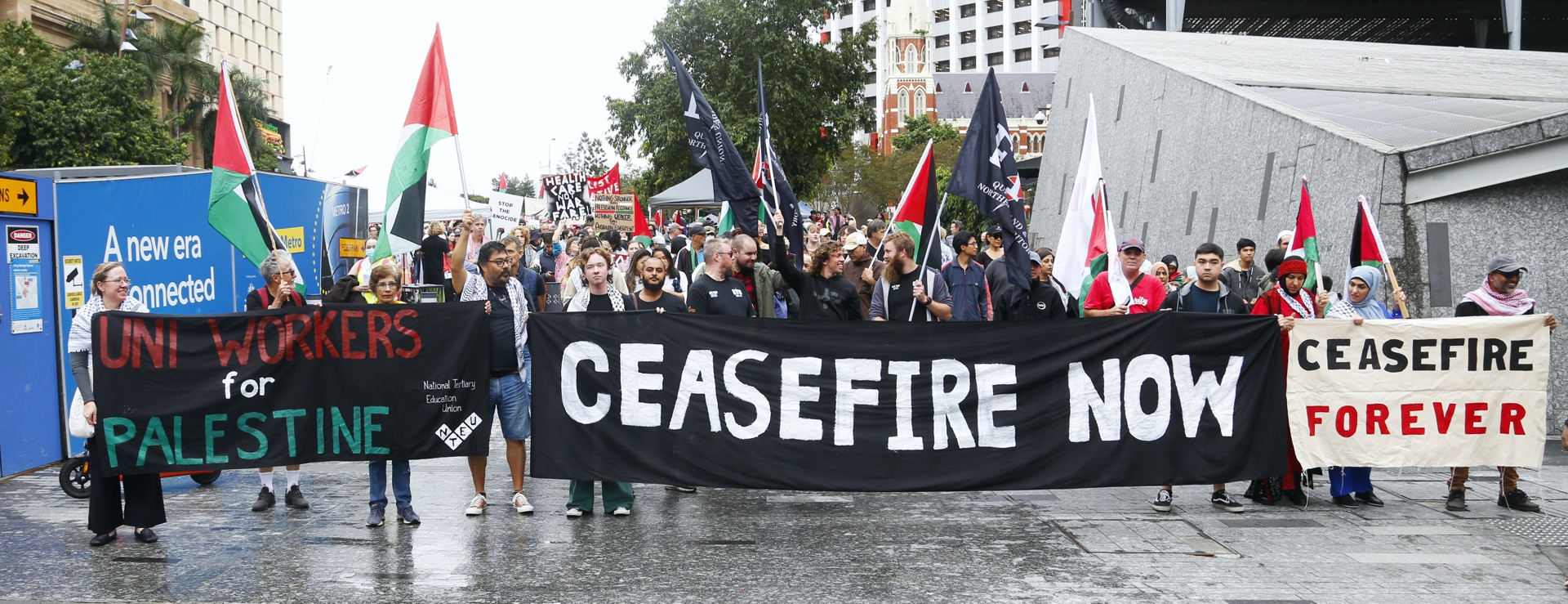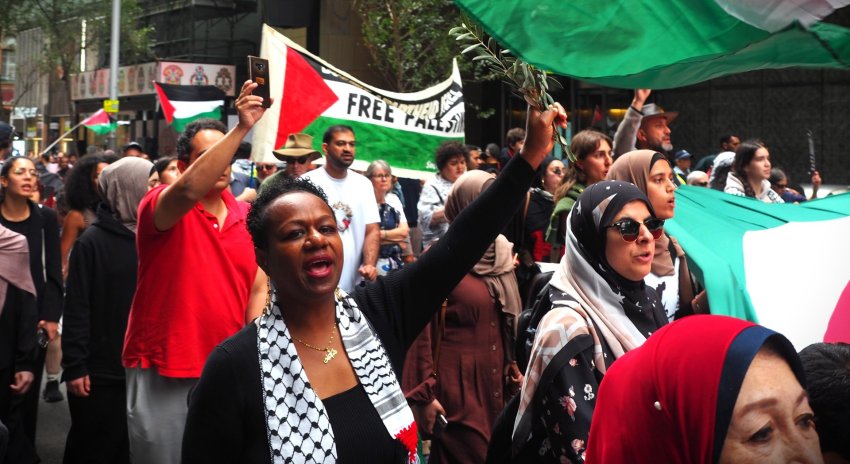
As Israel maintained belligerent threats to launch a ground invasion of Rafah and the United States Congress passed a US$26 billion aid package for genocidal Israel, thousands marched on April 21 for justice for Palestine, in the 28th consecutive week of protests in Australia.
The US also denied reports that the Joe Biden administration had agreed to support an Israeli invasion of Rafah if Israel refrained from further attacks on Iran.
Israel launched further bombings against Iran, after Iran retaliated against earlier Israeli attacks.
Several of the April 21 protests highlighted Palestinian Prisoners Day on April 17.
Palestinian prisoners are largely erased from corporate media commentary about Palestine, for demands by Western politicians that Hamas should release the remaining Israeli captives (most of whom are military personnel).
Nikita White from Amnesty International told the Magan-djin/Brisbane rally that, over the last six months, it had documented a “further deterioration of conditions Palestinian prisoners face” in both the West Bank and Gaza.
According to Palestinian prisoner human rights organisation Addameer, around 9500 Palestinian prisoners are in Israeli jails today. This compares to fewer than 5000, before October 7.
More than one-third of these are held in “administrative detention” — they have not been charged with any crime.
nikitaamnesty21-4-24byalexbainbridge-web.jpg
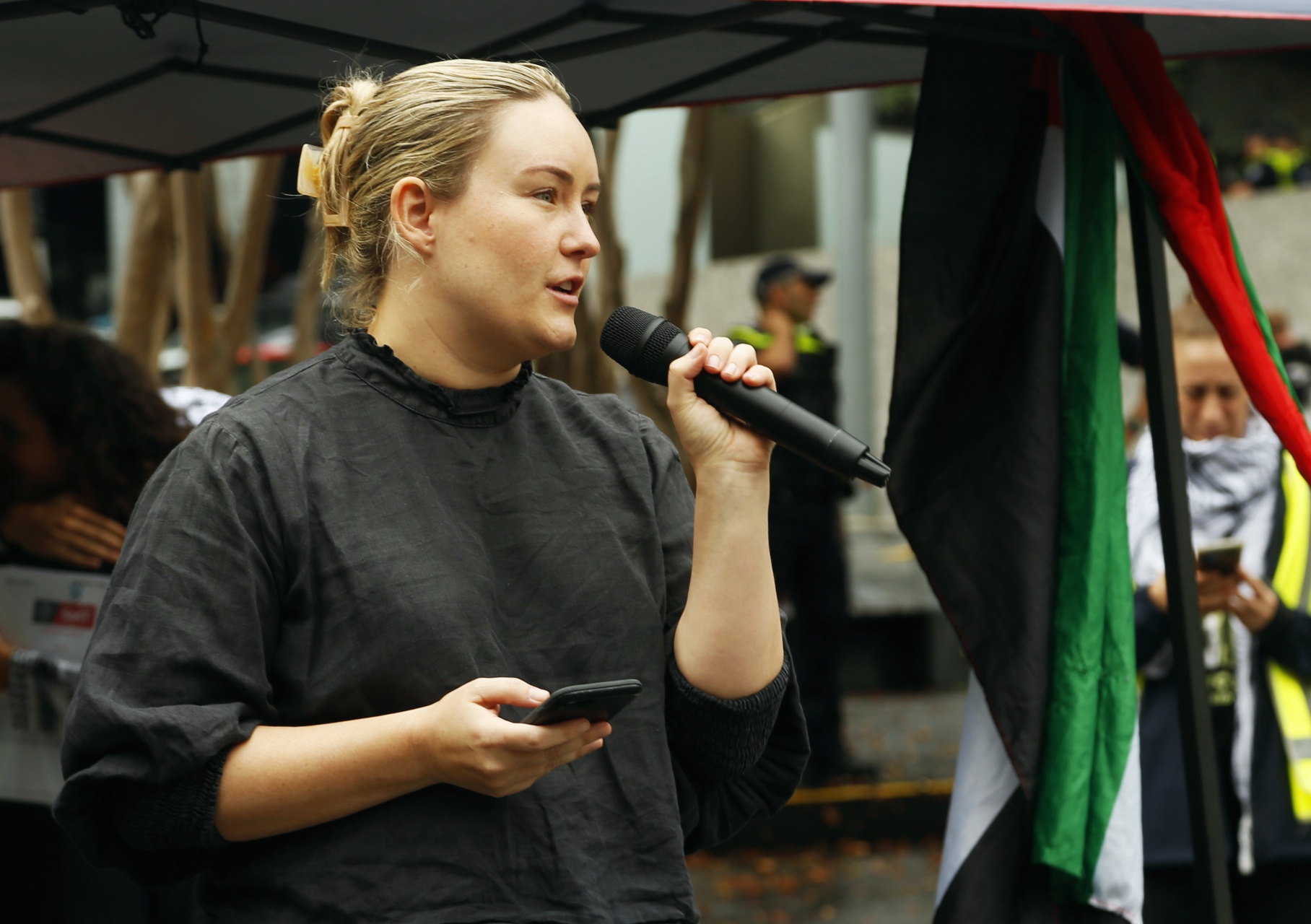
“Administrative detention is one of the tools through which Israel enforces its system of apartheid against Palestinians,” White said.
“It is a tool to persecute Palestinians as is the detention of hundreds of Palestinian children who are tried in military courts every year.”
She said Palestinian prisoners report being severely beaten, blindfolded and stripped of their clothes. Israel is “deliberately humiliating detainees”.
According to White, Palestinian prisoners include human rights defenders, lawyers and journalists.
“We even spoke to a clown,” she said, and “this is not the first time we've spoken to someone who's been detained simply for trying to bring joy to children”.
Palestinian activist Omar Ashour told the rally that Israel's prison system is an “extension to the military occupation arm of Israel” and not an “arm of the justice system”.
“This system has nothing to do with justice and all to do with apartheid and occupation.”
holdingspoons21-4-24byalexbainbridge-web.jpg
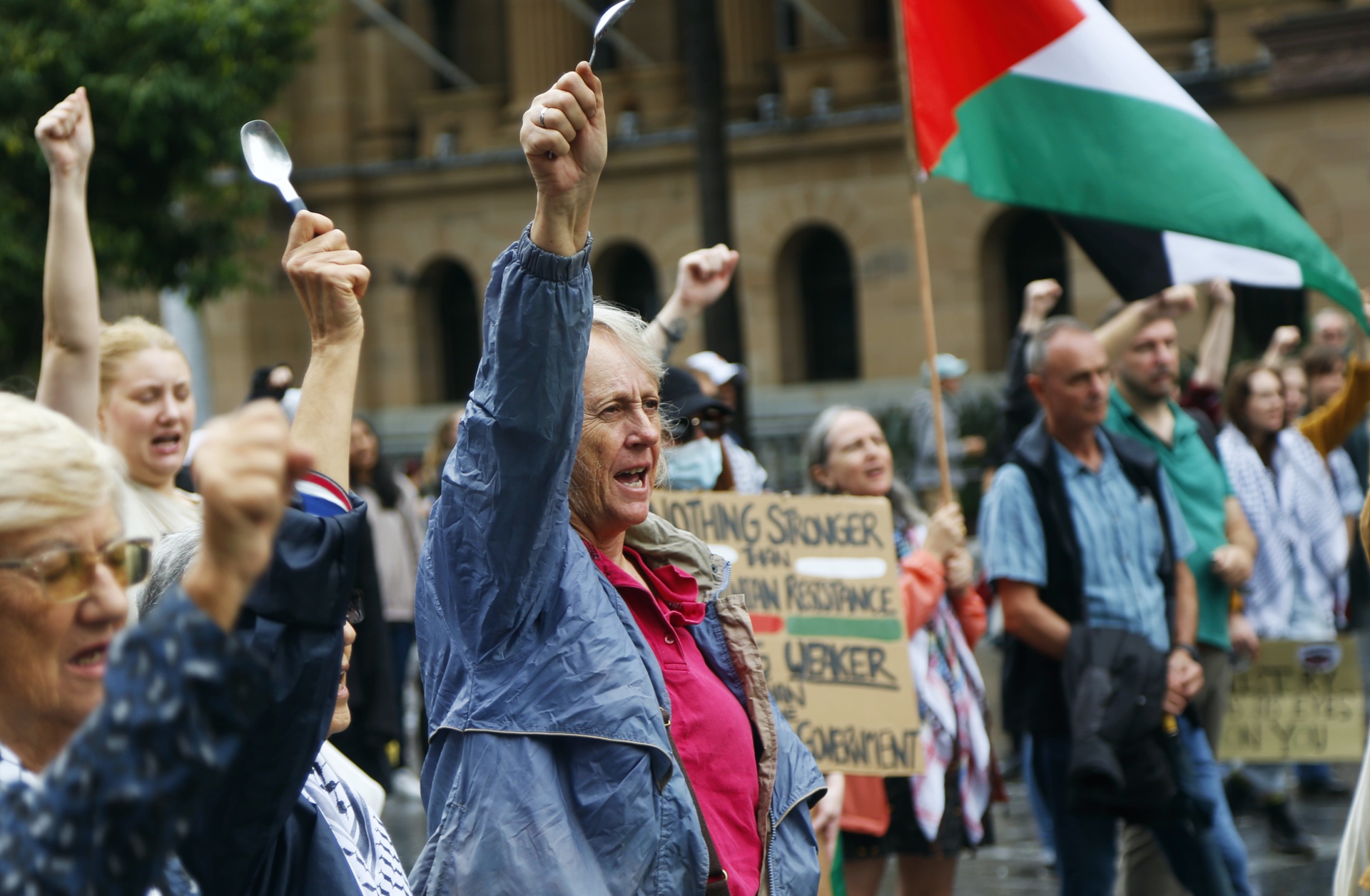
Ashour highlighted the case of Walid Daqqa, who was sentenced to life imprisonment in 1984 in relation to the murder of an Israeli soldier. He was not accused of committing the murder, but of commanding the group responsible. He denies this charged.
Ashour said that Daqqa wrote extensively, was a mentor to other prisoners and that “he did not give up on life in prison”. Daqqa married in prison, though he was “never allowed time with his wife as other prisoners are”, Ashour said.
Daqqa had a baby with his wife using sperm smuggled out of prison, but was never allowed to hug his daughter. Even after his April 7 death, Israel refused to give Daqqa's body back to his family and dispersed a memorial gathering in his honour.
“The Israeli authorities are clearly still scared of Walid, even after his death,” Ashour said.
Liam Reichman from the Electrical Trades Union (ETU) also spoke and ETU members joined other unionists at the front of the march. Protesters carried spoons — a symbol of solidarity with Palestinian prisoners.
The Gadigal/Sydney rally on April 21, which again mobilised thousands of people, also highlighted Palestinian Prisoners Day.
Peter Boyle reports that the march began in silence to underline the Australian government’s deafness to the movement's demands and the attempts to silence the Palestinian voices of resistance.
“We marched silently for two blocks before chanting: ‘From the river to the sea, Palestine will be free!’,” Boyle said.
moreceasefire21-4-24bypeterboyle.jpg
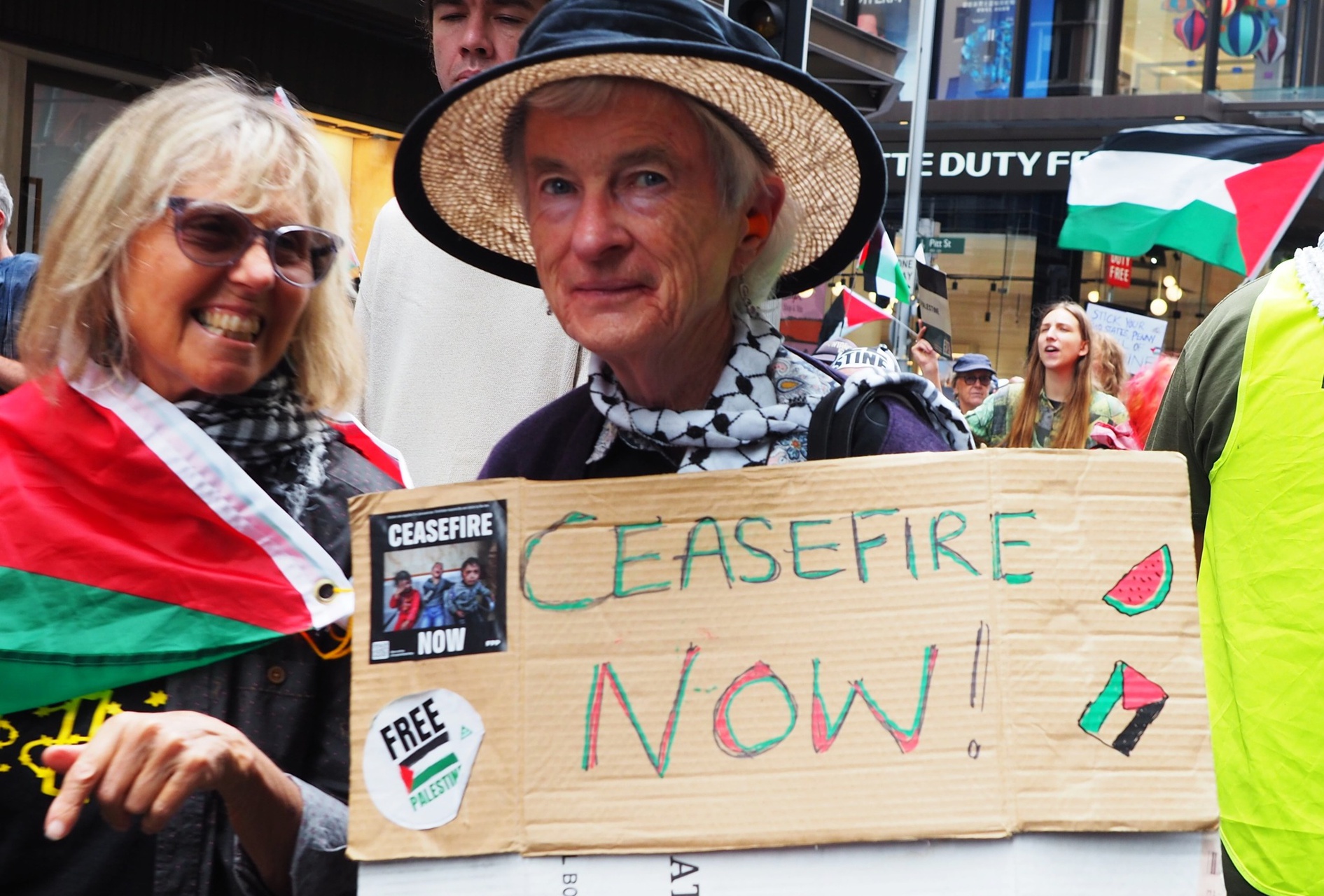
City of Sydney for Palestine activist Rachel Evans told Green Left the protest expressed solidarity with more than 50 people arrested at pro-Palestine actions in NSW. These include people arrested at port blockades directed against the Israeli ZIM shipping line and nine people arrested at Mardi Gras.
A court solidarity action was held on April 22, outside the Downing Centre. One elderly pro-Palestinian protester was detained by police for an hour for bringing a wooden bowling pin into court, that police described as a weapon.
A 50-strong, pro-Palestine vigil was held at Sydney Town Hall on April 19.
Thousands rallied in Naarm/Melbourne on April 21, reports Chloe DS.
Renegade Activist and anti-militarism campaigner, Mercedes Zanker, contrasted the government's refusal to spend money to “lift people out of poverty, or make sure they have access to healthcare or dental” when just a “four days ago the Albanese government boasted about its $765 billion [in the decade to 2033–34] defence spending portfolio”.
Eritrean and Sudanese activist, Hiba, also spoke about how there is no healthcare access in Sudan.
genocidenotcomplex21-4-24bychloeds.jpeg
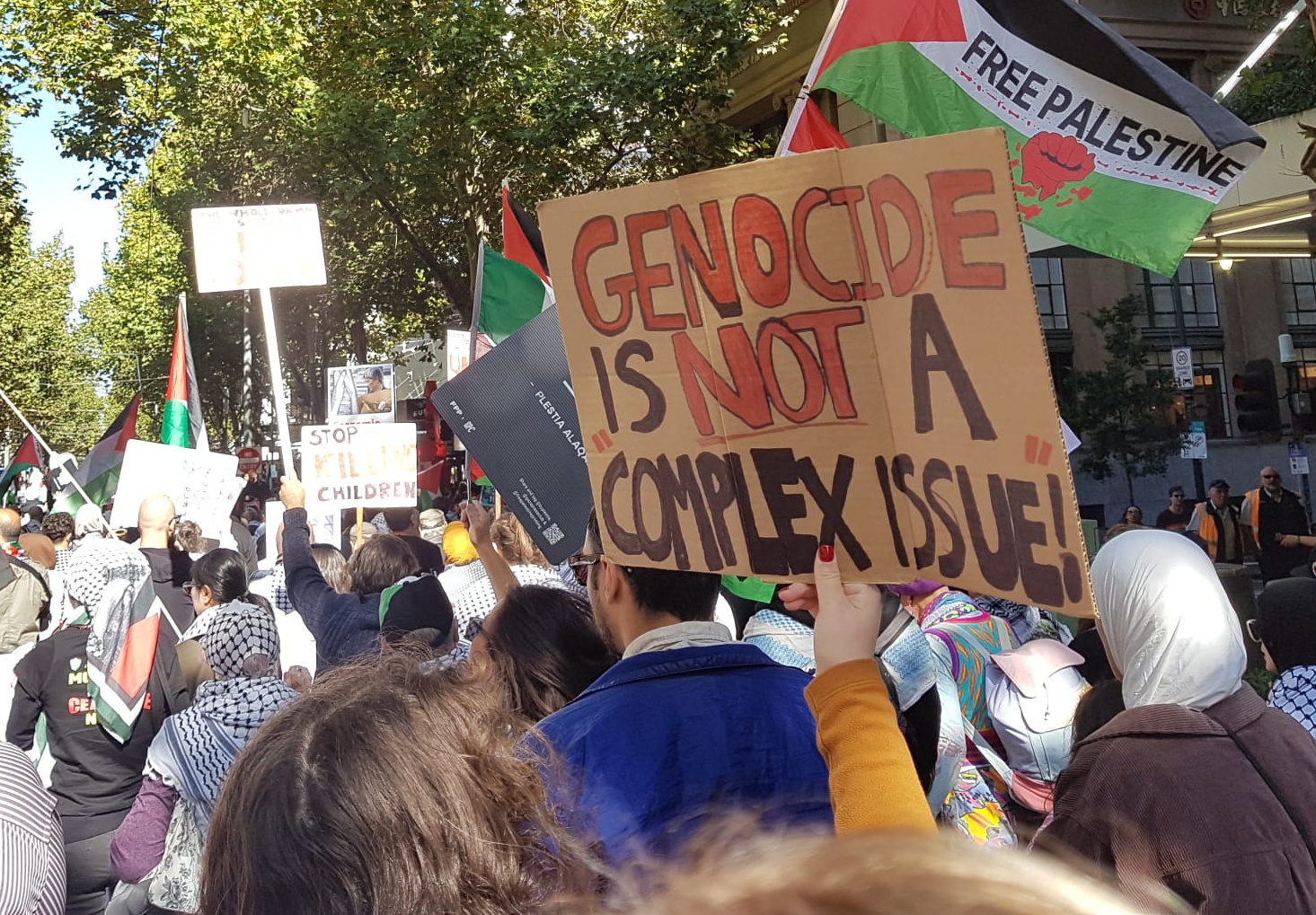
Aseel Tayah sang a powerful song, and the rally was led by healthcare workers expressing solidarity with Palestinian health workers slaughtered by Israel.
There was also a vibrant picket outside Heat Treatment Australia (HTA) on April 19. HTA is one of several companies making parts for F-35 fighter planes used by Israel. Activists have been targeting these weapons companies for months.
First Nations activist Robbie Thorpe read a statement at a protest outside Attorney-General Mark Dreyfus's office in Mordialloc on April 16. Dreyfus is preventing legal action against Australian complicity in genocide from being heard in court.
freepalestine21-4-24byrenfreyclarke.jpg
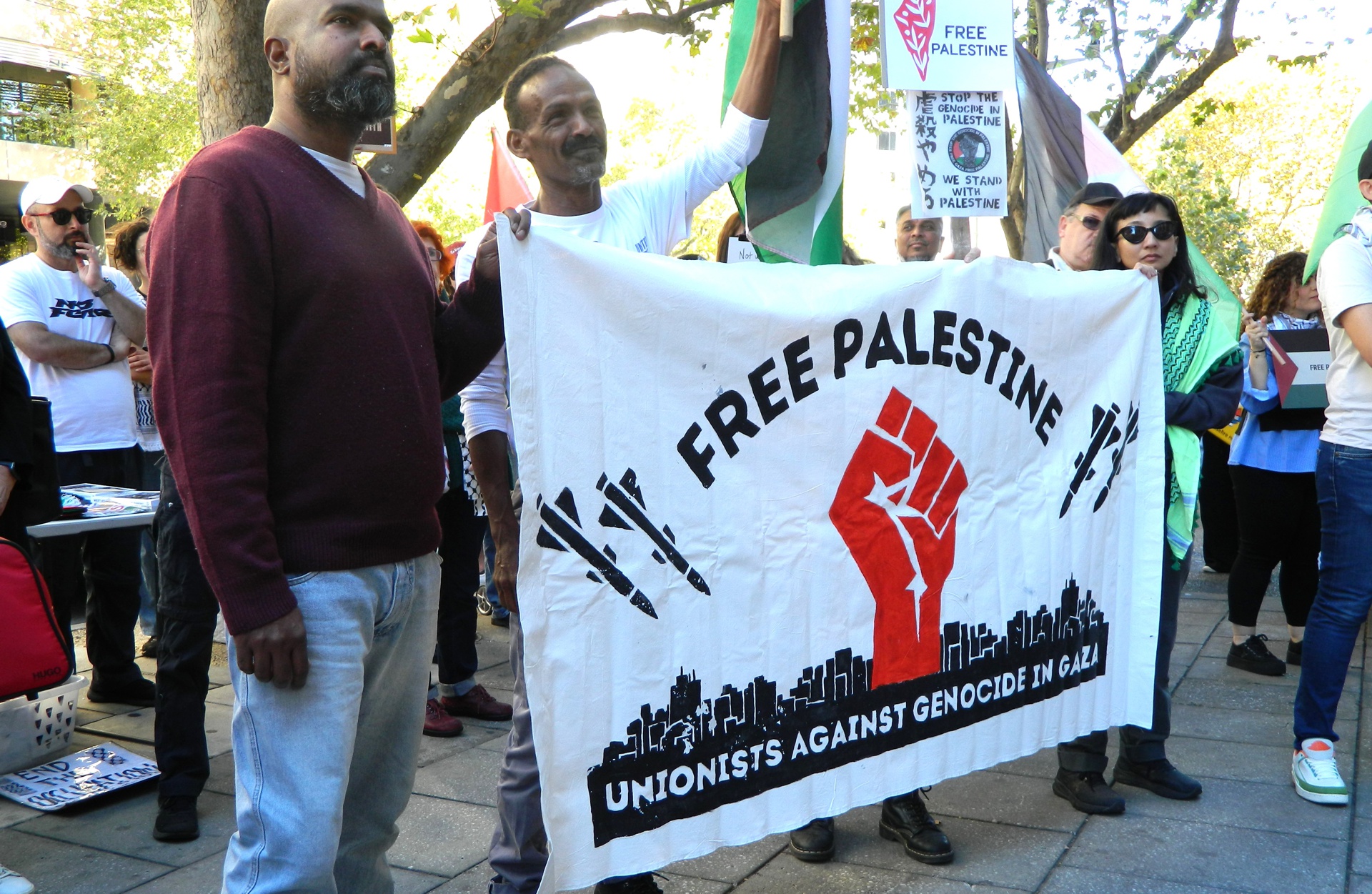
Supporters of Palestinian rights in Kaurna Yerta/Adelaide rallied on April 21 outside South Australia's Parliament House. Renfrey Clarke reports that around 500 people listened to speakers, including Palestinian scientist Mazim Qumsiyeh of Bethlehem University, before marching through the city centre. Qumsiyeh is currently on a national speaking tour.
profmazinqumsiyeh21-4-24byrenfreyclarke.jpg
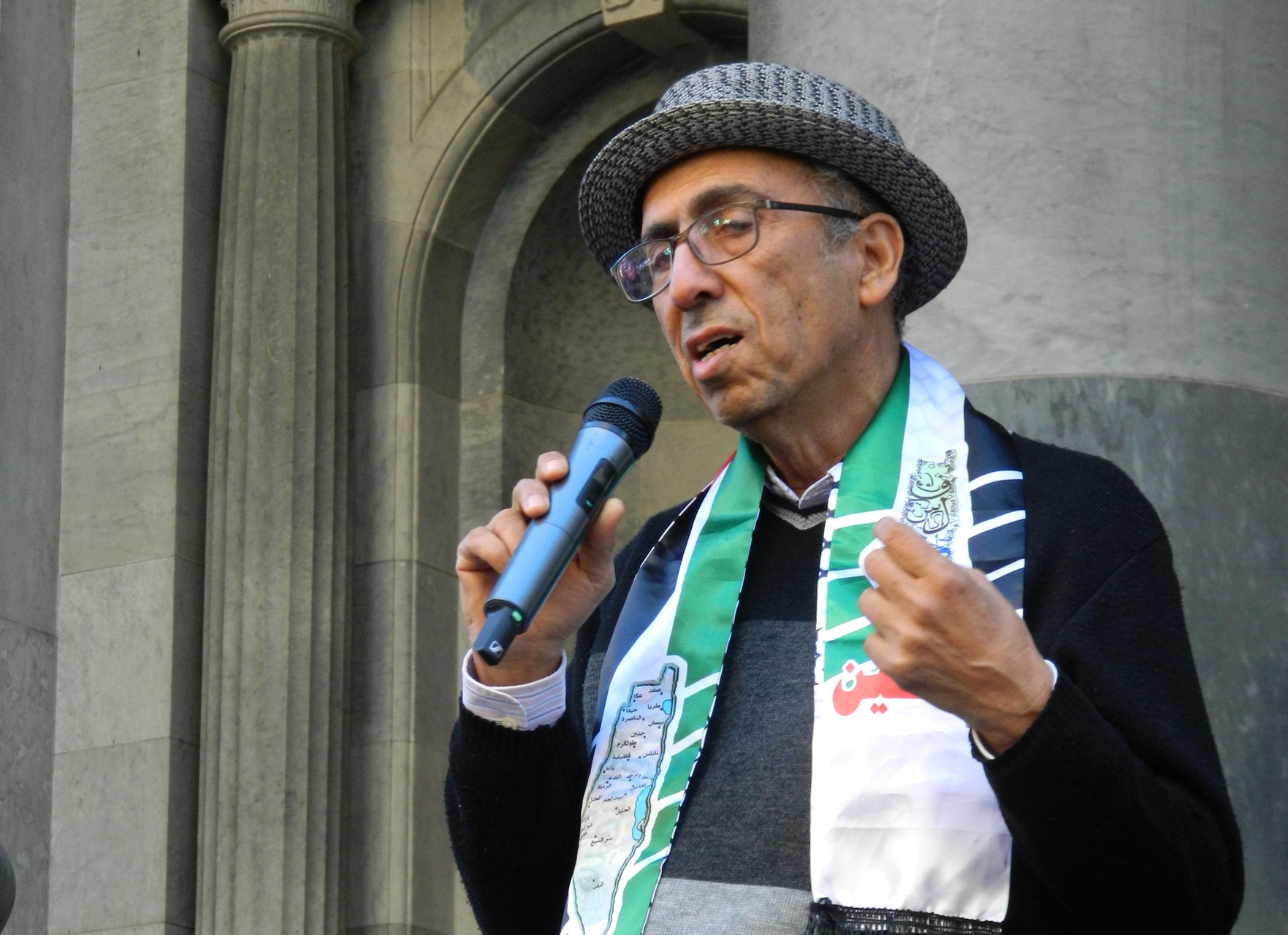
alwaysseems21-4-24byrenfreyclarke.jpg
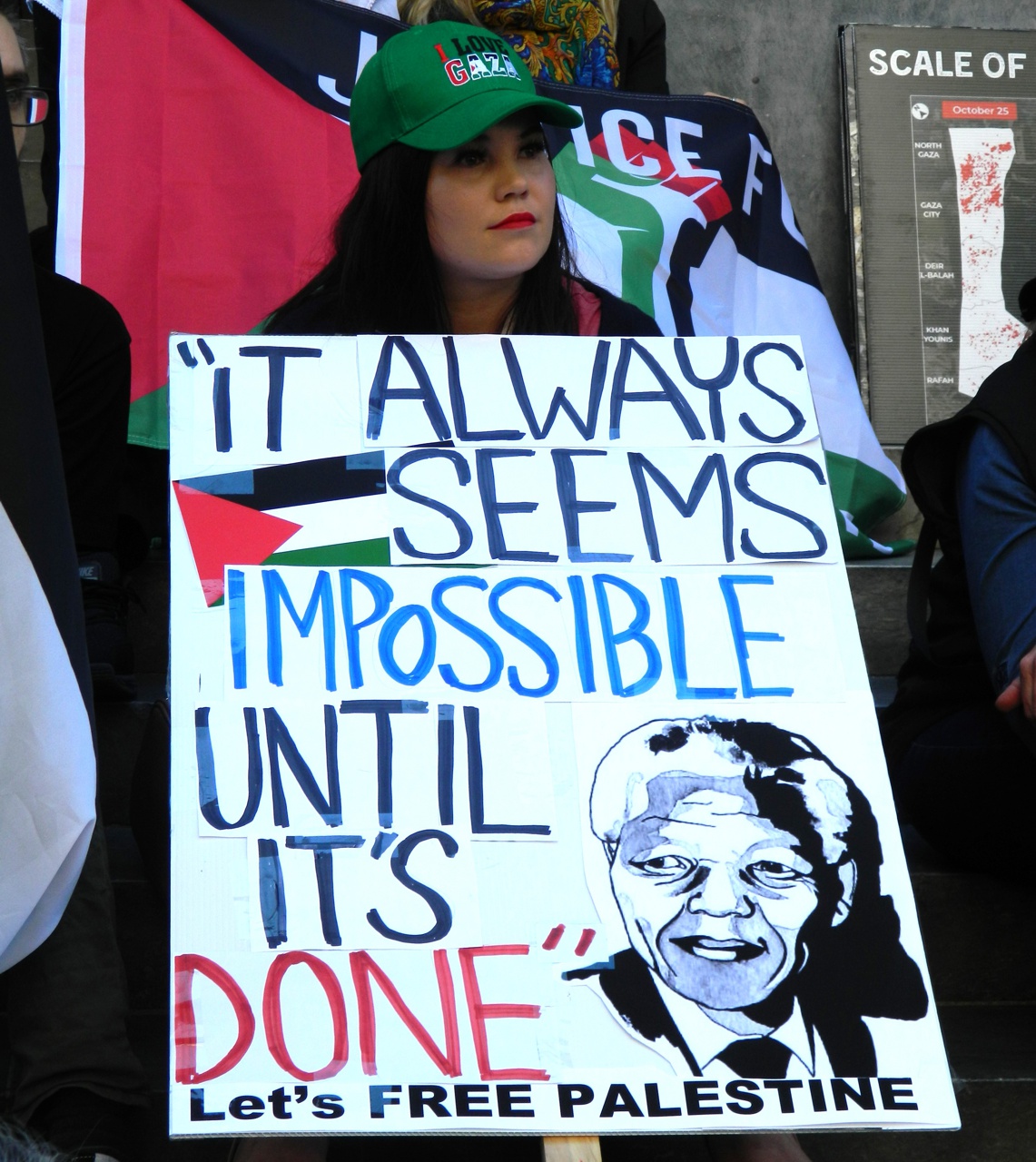
khaledghannam21-4-24bypeterboyle.jpg
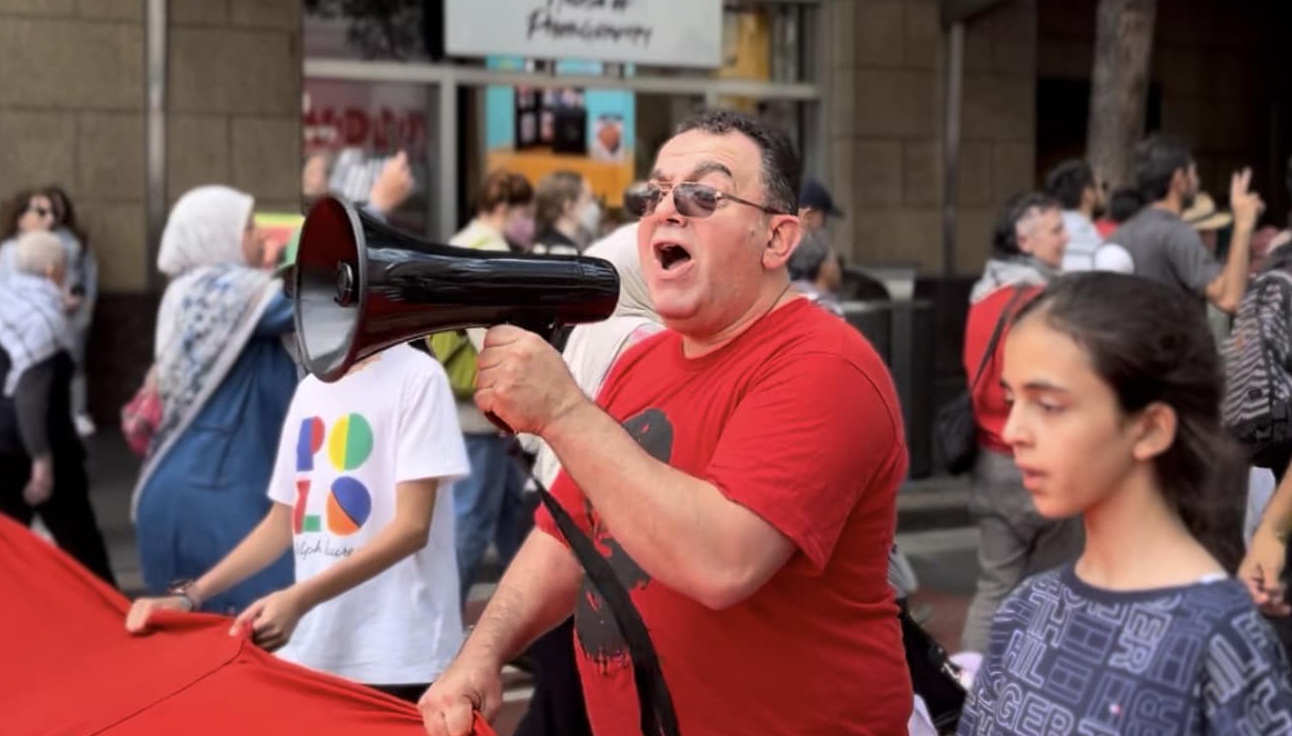
stickyourtwostates21-4-24bypeterboyle.jpg
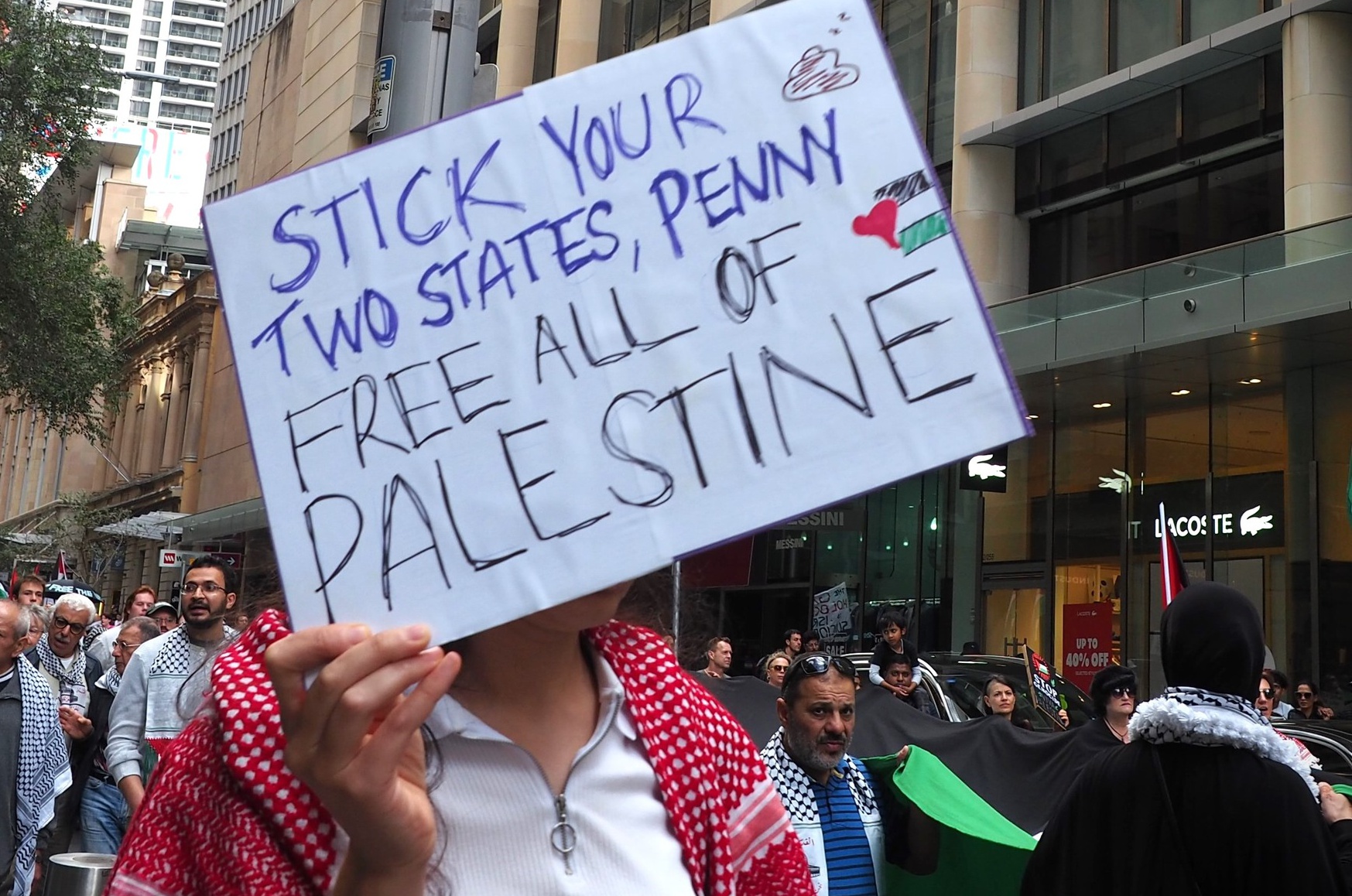
palestinewillbefree21-4-24bypeterboyle.jpg
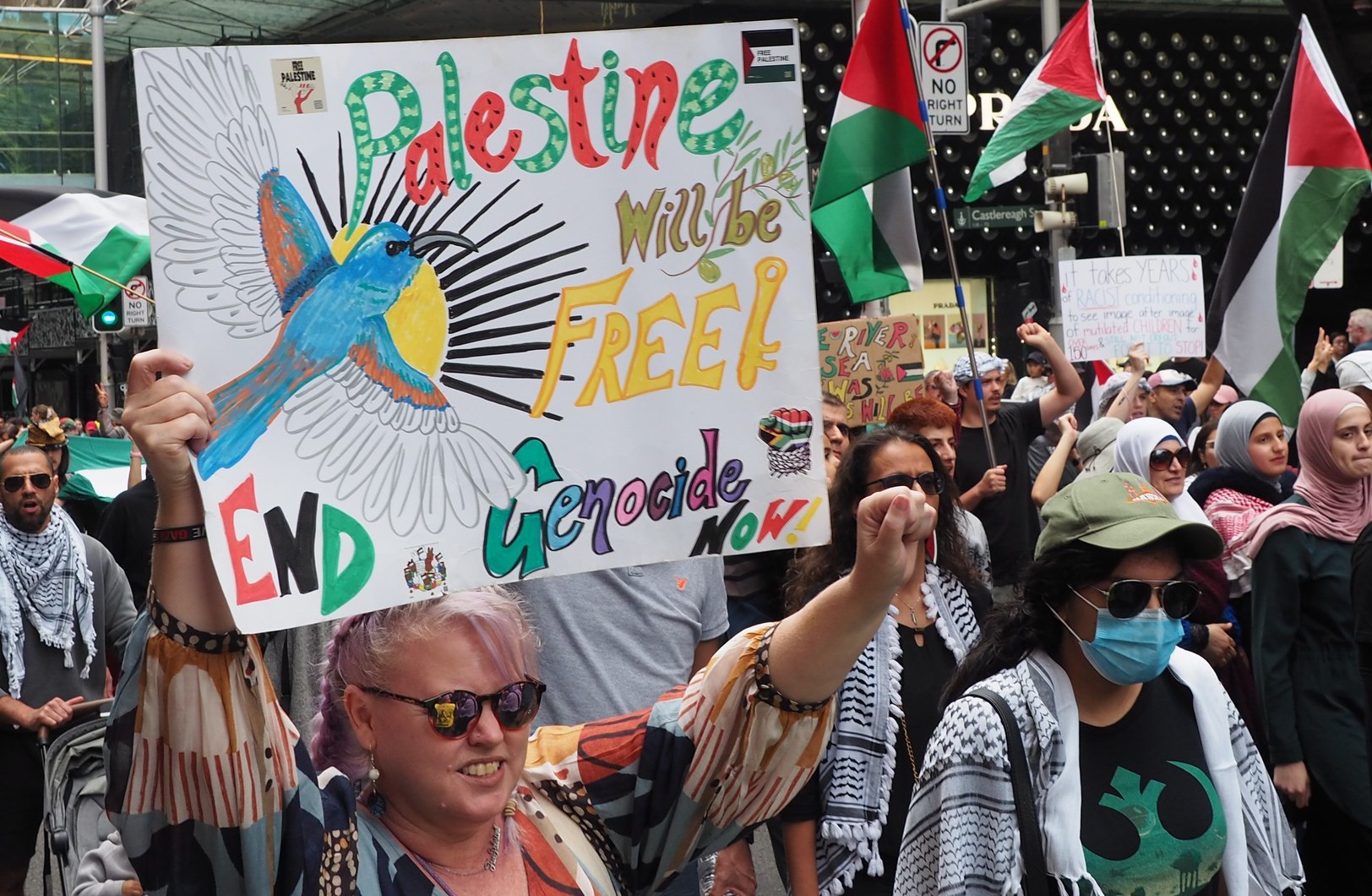
teachersforpal21-4-24byjordanak.jpeg
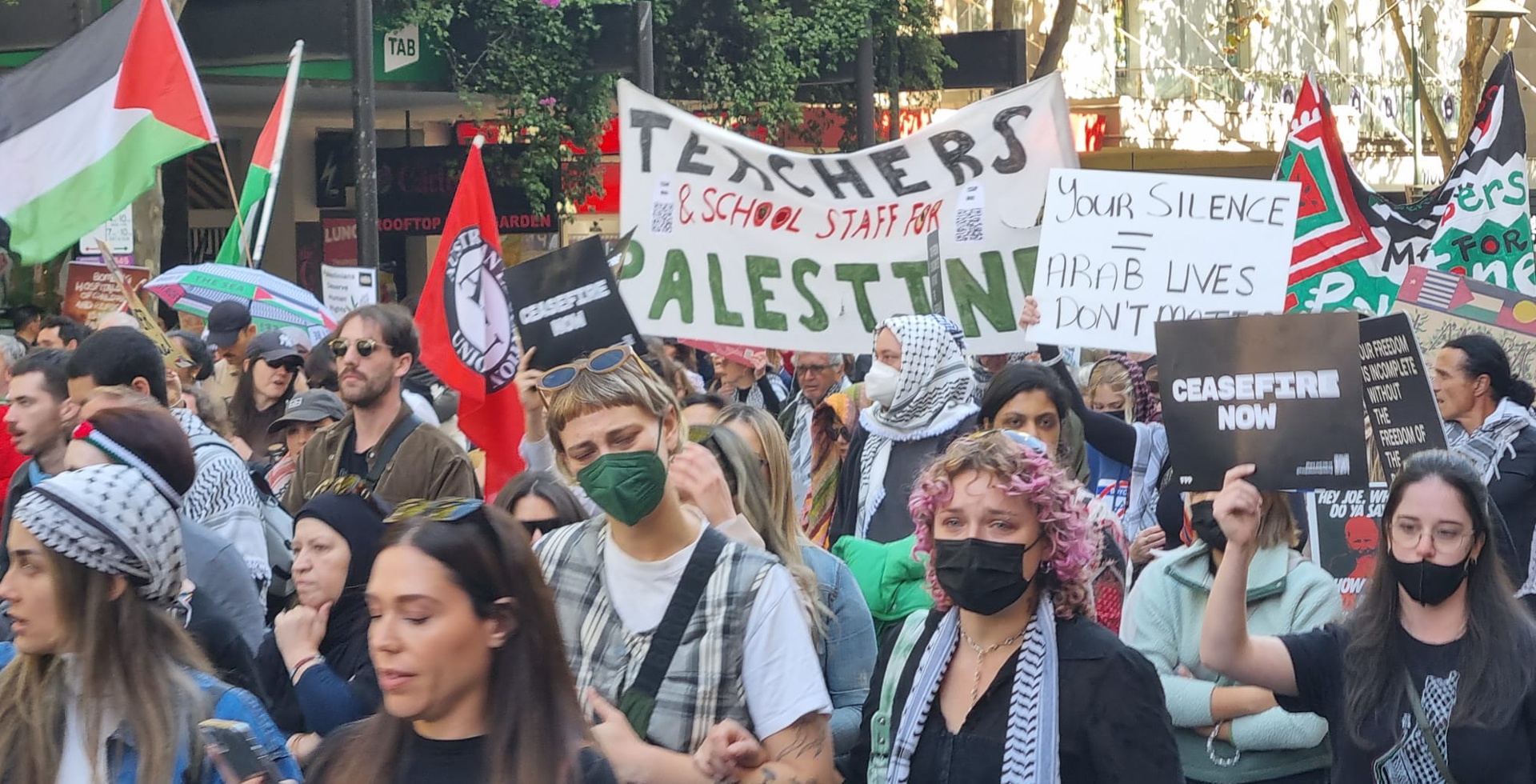
freepal-ceasefire21-4-24byjordanak.jpeg
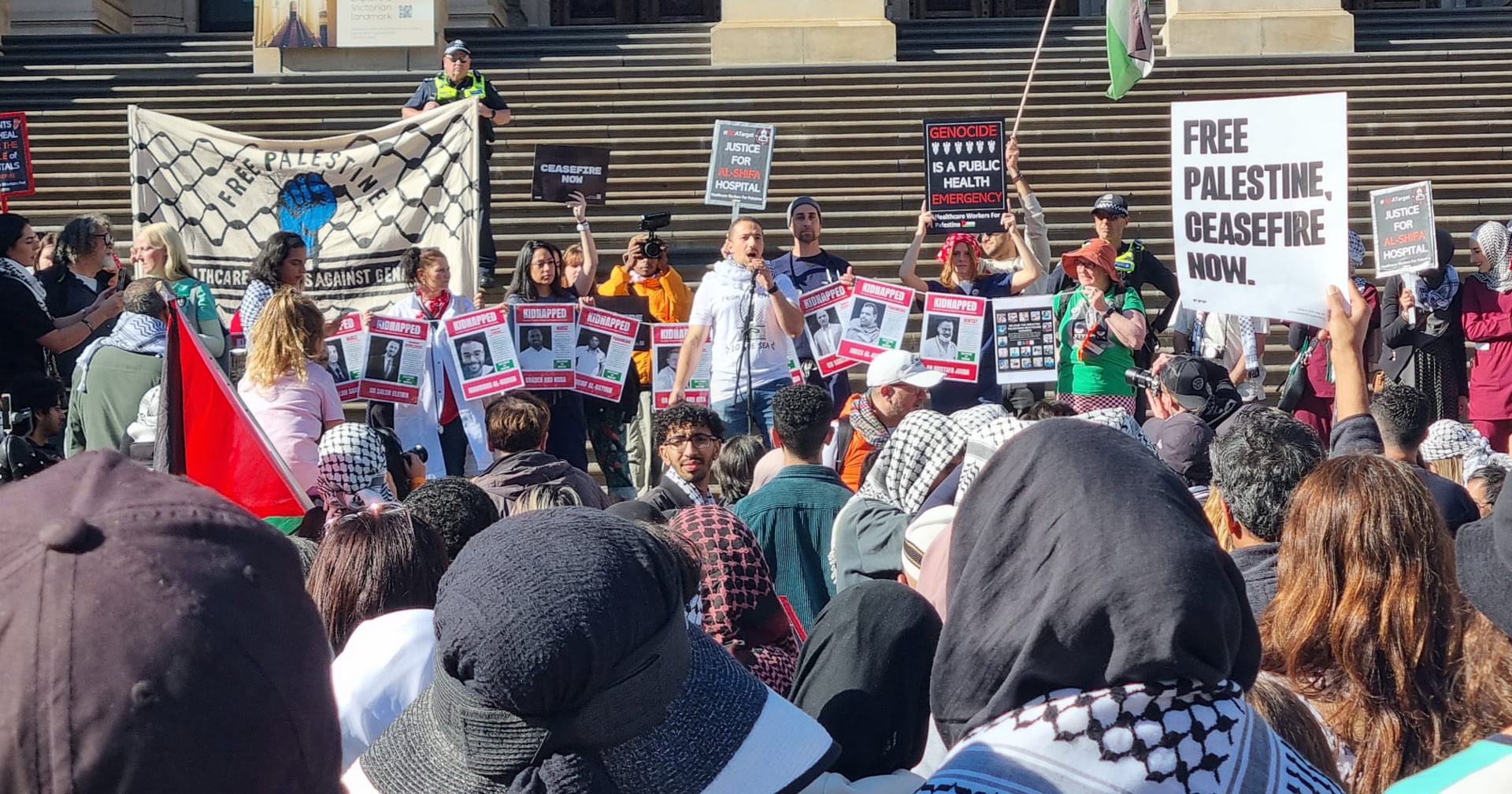
israelterrorstate21-4-24bychloeds.jpeg
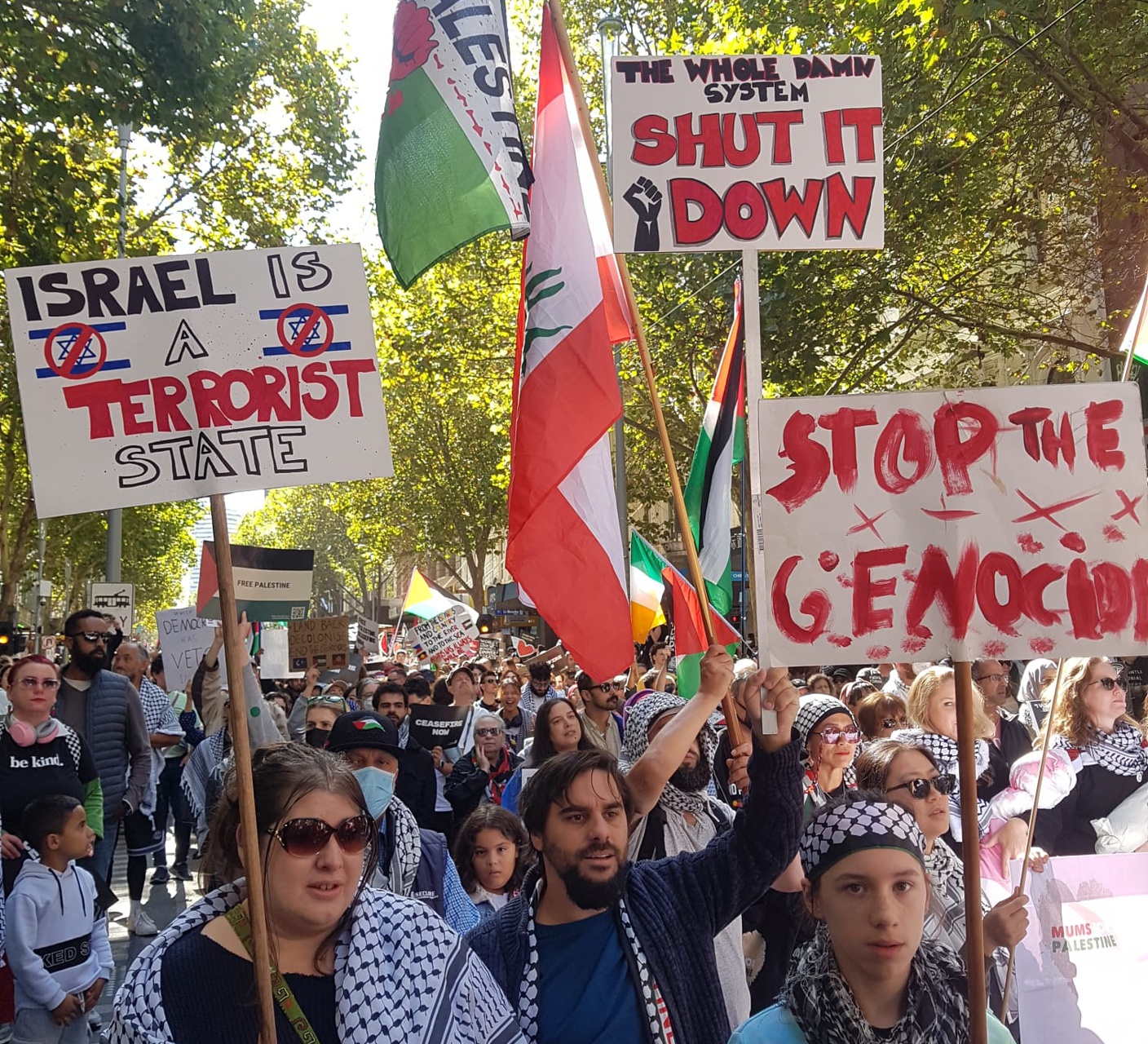
ceasefireforever21-4-24byalexbainbridge-web.jpg
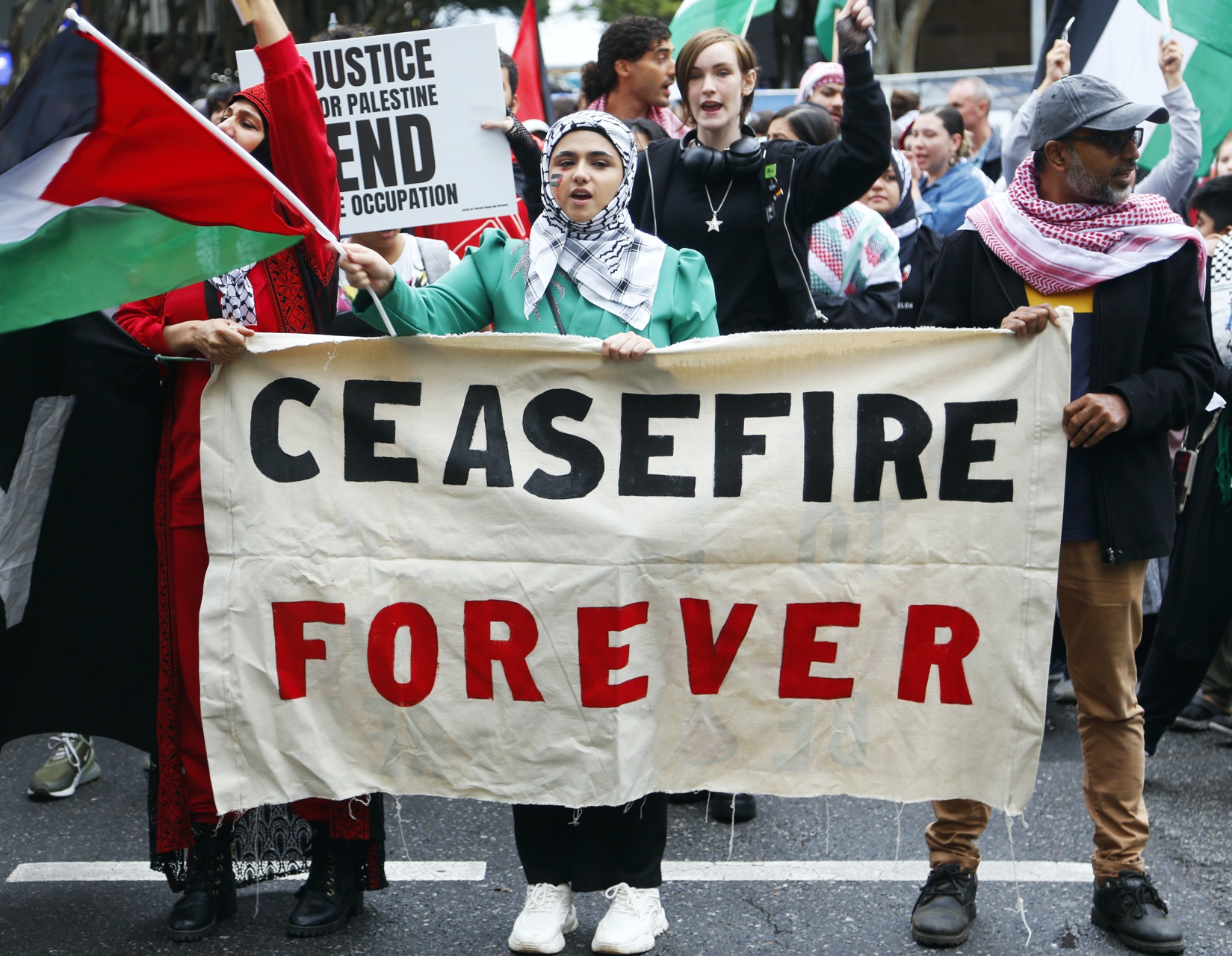
malaak21-4-24byalexbainbridge-web.jpg
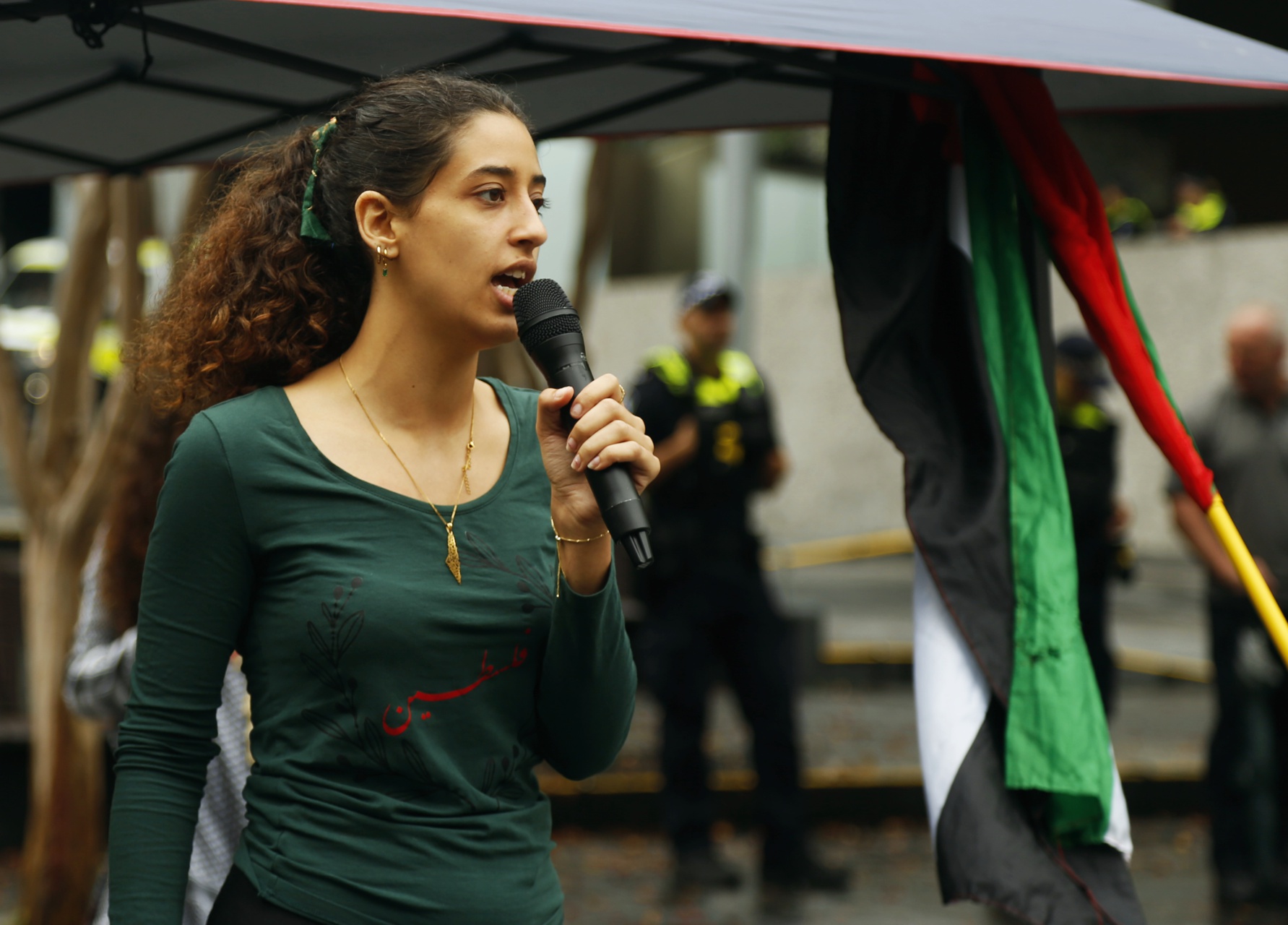
rally21-4-24byalexbainbridge-web.jpg
